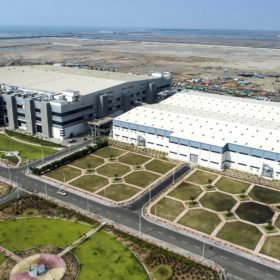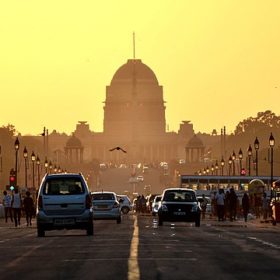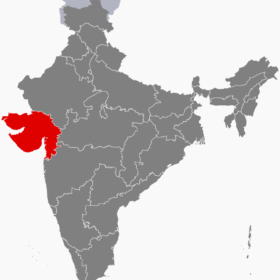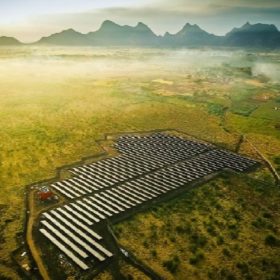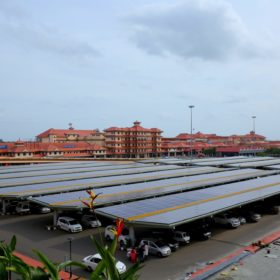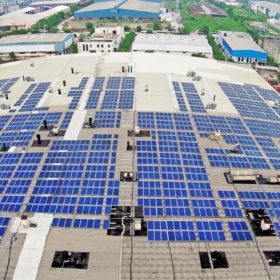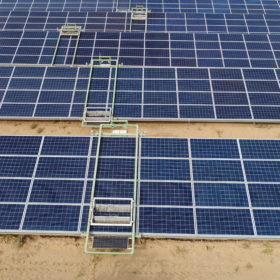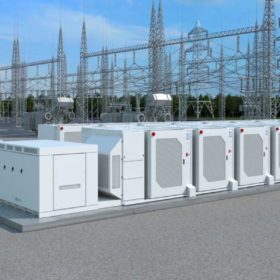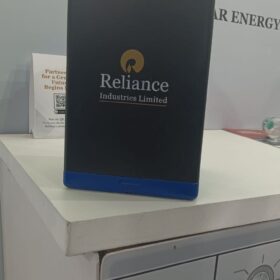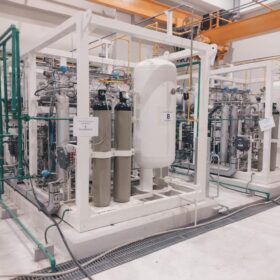Industry reacts to 25% duty; developers to cough up extra $ 72 million
From cheer to gloom, the Indian solar industry has had mixed reactions to the Supreme Court’s interim order lifting the stay on imposition of 25% safeguard duty on imported solar cells and modules.
India’s Supreme Court allows imposition of 25% duty on solar imports – reports
In a significant move, which will greatly impact India’s solar industry, the country’s Supreme Court has reportedly given the go-ahead for the government to impose 25% safeguard duties on imports of PV cells and modules. The levy will be effective July 30, 2018.
India’s first solar bike track corridor to open next March
India’s first solar bicycle track corridor, which is set to generate around 6 MW of clean power daily, is scheduled to be operational in March 2019. Covering 12 km, the corridor will stretch from Mubarka Chowk to Wazirabad in New Delhi’s Outer Ring Road.
500 MW Gujarat solar tender oversubscribed 4 times
Gujarat Urja Vikas Nigam Limited (GUVNL)’s re-tender of the annulled 500 MW grid-connected solar PV tender has been oversubscribed by almost four times. Technical bids aggregating 1,925 MW have been submitted against the tendered capacity of 500 MW.
MNRE proposes shorter commissioning time for solar projects
To meet its 100 GW solar target by 2022, India’s Ministry of New & Renewable Energy (MNRE) has proposed shortening the commissioning period for solar projects.
Government focuses on PV quality concerns
The award of the nation’s first solar project quality certificate may signal a renewed determination by the federal authorities to crack down on low-quality panels – with Far Eastern imports firmly in their sights.
Tata Power installs ‘world’s largest’ cricket stadium solar rooftop
Tata Power Solar has commissioned an 820.8 kWp solar rooftop at the Cricket Club of India (CCI), in Mumbai. It claims it is the world’s largest solar rooftop on a cricket stadium.
SECI reduces manufacturing tender size from 5 GW to 3 GW
In a major development, the Solar Energy Corporation of India (SECI) has reduced its solar manufacturing tender size from 5 GW to 3 GW, and curtailed the minimum bid capacity from 1 GW to 600 MW. The size of Power Purchase Agreement (PPA), however, remains unchanged at 10 GW.
Historic low tariff for 35 MW rooftop solar tender
The recent 35.29 MW rooftop solar tender, floated by Madhya Pradesh Urja Vikas Nigam Limited (MPUVNL) hit a historic low tariff of Rs. 1.58 (US$0.022) per unit. Overall, it attracted 31 bidders, and was oversubscribed by 630%.
India to introduce cap on solar tariff
In a major development, the Ministry of New & Renewable Energy (MNRE) has directed the Solar Energy Corporation of India (SECI) to fix the upper permissible solar tariff at Rs. 2.50 (US$0.036)/kWh and Rs. 2.68 ($0.038)/kWh for developers using domestic solar cells and modules (without safeguard duties), and imported products (with safeguard duties), respectively.
